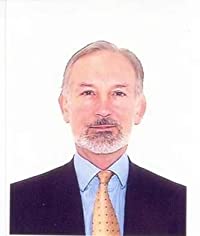
Gilbert Doctorow
Gilbert Doctorow is a Research Fellow of the American University in Moscow
The larger contingent of Russia-neutral to Russia-friendly MEPs in the European Parliament belongs to the Left
Approximately 20% voted against sanctions in the European Parliament. Widespread rejection of media narrative that Russia is culpable for Ukraine war, blaming instead the EU and US. Concern over civilian war victims, right-wing extremism.
Gilbert Doctorow is the founder of the European office of the Committee on East-West Accord. Based in Brussels, he writes frequently on Russian international relations. He reports here especially forRussia Insider on a conference about Ukraine held at the European Parliament on Tuesday.
Voting on resolutions calling for sanctions against Russia in the European Parliament this past summer produced a decisive victory for the ‘yes’ votes. 13% voted 'no', with another 10% abstaining or absent, so one can surmise that opposition to the resolutions approached 20%, and has probably grown since then.
By comparison if a similar vote were held in the US Congress, it is unlikely more than 5 Representatives, or 1%, would stand up against the resolution and there would be no abstentions.
Who are these MEPs opposed to the Russia-bashing policies of the majority?
As we know from their sound bites picked up by mainstream media which give them the microphone because of the whiff of scandal that surrounds them, some are the European soul-mates of the American Tea Party. These are Euroskeptics, populist parties such as Marine Le Pen’s Front National and her allies in the continent-wide European Alliance for Freedom. Others are in Nigel Farage’s UKIP and its tiny partners at the European level.
However, the larger contingent of Russia-neutral to Russia-friendly MEPs in the European Parliament belongs to the Left, in an alphabet soup of progressive politics mini-blocs which formed a decade ago or more.
On October 14, at the European Parliament building, Gabi Zimmer, member of Die Linke in Germany and head of the European United Left/Nordic Green Left bloc, presided over a conference dedicated to Ukraine that was unlike any other in the European capital this past year.
The difference was the neutral, fact-finding purpose of the organizers as opposed to the usually vicious partisanship and accusative fingers that characterized all the other press conferences and specialized events over Ukraine in this town.
The Tea Party vote against Russia-bashing to spite the Europe-the-Superpower ambitions of Parliament President Martin Schulz and the centrists, since they want to retain foreign policy decision making at the national level and deconstruct the Union. The Left votes the same way, because they envision the EU in terms of social solidarity and economic progress, not militarized foreign policy and creation of spheres of influence at the Union’s borders. Moreover, they defend freedom of speech and opinion within the Parliament where the leadership would enforce its political correctness about Russia and much else on the whole membership.
As Gaby Zimmer and other United Left speakers remarked, the bloc does not accept the mainstream narrative on Russian culpability in fomenting the Ukrainian civil war, which they rather lay at the door of both external suitors for Ukraine’s affection, the EU and Russia, and particularly on EU intransigence a year ago over possible 3-way talks. Moreover, with its accent on living standards of peoples and not national or supranational geopolitical games, the United Left called out then and reiterates today that the Association Agreement with the EU can only destroy Ukrainian industry, create joblessness and promote massive emigration from Ukraine to the EU countries.
The leitmotiv of the conference was the internal contradictions in the Ukraine rooted in history and geography, and exacerbated by the rule of the oligarchs ever since independence in 1991. Without due attention to these mutually exclusive claims to political rule within Ukraine, national reconciliation is impossible. Accordingly, guest speakers from Kiev were invited to testify about the internal power struggles.
The guests included former deputy Prime Minister Oleksandr Vilkul and first secretary of the now banned Communist Party of Ukraine Semenenko. They commented on videos documenting the intimidation and open violence being perpetrated on candidates to the forthcoming Ukrainian elections of 26 October.
As Kostas Chrysogonos, Greek MEP, member of the Radical Left explained, the imposition of sector sanctions by the EU was done by the Council in violation of the EU’s foundation documents which require advance review of such trade measures by the Parliament. Not that the Parliament would have rejected such request, but it would have been obliged to openly debate the matter, something which the leadership of EU Institutions today dares not risk.
Thus, those who denounce Putin’s Russia for alleged authoritarian decision making, would do better to look in the mirror at the democratic deficit in the capital of Europe.



_jpg/250px-ElbeDay1945_(NARA_ww2-121).jpg)







